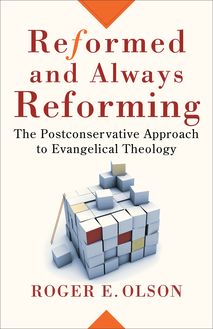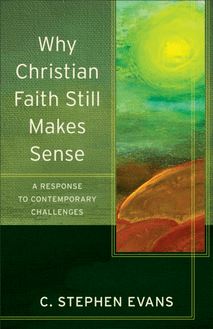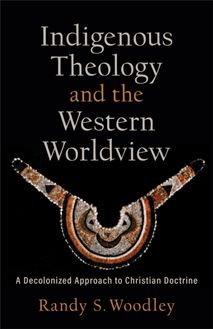Divine Christ (Acadia Studies in Bible and Theology) , livre ebook
153
pages
English
Ebooks
2018
Vous pourrez modifier la taille du texte de cet ouvrage
Obtenez un accès à la bibliothèque pour le consulter en ligne En savoir plus
Découvre YouScribe en t'inscrivant gratuitement
Découvre YouScribe en t'inscrivant gratuitement
153
pages
English
Ebooks
2018
Vous pourrez modifier la taille du texte de cet ouvrage
Obtenez un accès à la bibliothèque pour le consulter en ligne En savoir plus
Publié par
Date de parution
20 mars 2018
Nombre de lectures
0
EAN13
9781493413324
Langue
English
Poids de l'ouvrage
3 Mo
Publié par
Date de parution
20 mars 2018
Nombre de lectures
0
EAN13
9781493413324
Langue
English
Poids de l'ouvrage
3 Mo
Cover
Series Page
Acadia Studies in Bible and Theology
Craig A. Evans, General Editor
T he last two decades have witnessed dramatic developments in biblical and theological study. Full-time academics can scarcely keep up with fresh discoveries, recently published primary texts, ongoing archaeological work, new exegetical proposals, experiments in methods and hermeneutics, and innovative theological syntheses. For students and nonspecialists, these developments are confusing and daunting. What has been needed is a series of succinct studies that assess these issues and present their findings in a way that students, pastors, laity, and nonspecialists will find accessible and rewarding. Acadia Studies in Bible and Theology, sponsored by Acadia Divinity College in Wolfville, Nova Scotia, and in conjunction with the college’s Hayward Lectureship, constitutes such a series.
The Hayward Lectureship has brought to Acadia many distinguished scholars of Bible and theology, such as Sir Robin Barbour, John Bright, Leander Keck, Helmut Koester, Richard Longenecker, Martin Marty, Jaroslav Pelikan, Ian Rennie, James Sanders, and Eduard Schweizer. The Acadia Studies in Bible and Theology series reflects this rich heritage.
These studies are designed to guide readers through the ever more complicated maze of critical, interpretative, and theological discussion taking place today. But these studies are not introductory in nature; nor are they mere surveys. Authored by leading authorities in the field, the Acadia Studies in Bible and Theology series offers critical assessments of the major issues that the church faces in the twenty-first century. Readers will gain the requisite orientation and fresh understanding of the important issues that will enable them to take part meaningfully in discussion and debate.
Title Page
Copyright Page
© 2018 by David B. Capes
Published by Baker Academic
a division of Baker Publishing Group
PO Box 6287, Grand Rapids, MI 49516-6287
www.bakeracademic.com
Ebook edition created 2018
All rights reserved. No part of this publication may be reproduced, stored in a retrieval system, or transmitted in any form or by any means—for example, electronic, photocopy, recording—without the prior written permission of the publisher. The only exception is brief quotations in printed reviews.
Library of Congress Cataloging-in-Publication Data is on file at the Library of Congress, Washington, DC.
ISBN 978-1-4934-1332-4
Unless otherwise indicated, all Scripture quotations are from the New Revised Standard Version of the Bible, copyright © 1989, by the Division of Christian Education of the National Council of the Churches of Christ in the United States of America. Used by permission. All rights reserved.
Scripture quotations labeled ESV are from The Holy Bible, English Standard Version® (ESV®), copyright © 2001 by Crossway, a publishing ministry of Good News Publishers. Used by permission. All rights reserved. ESV Text Edition: 2016
Dedication
To Larry Hurtado, friend & mentor
Contents
Cover i
Series Page ii
Title Page iii
Copyright Page iv
Dedication v
Abbreviations ix
Preface xiii
1. “Lord” and “L ORD ” in the Bible 1
2. Kyrios /Lord as a Christological Title 21
3. Jesus as Kyrios in Paul’s Letters 47
4. YHWH Texts with God as Referent 85
5. YHWH Texts with Christ as Referent 111
6. Pauline Exegesis and a High Christology 151
Conclusion 185
Selected Bibliography 189
Scripture and Ancient Writings Index 194
Author Index 201
Subject Index 203
Back Cover 207
Abbreviations
General and Bibliographic AT author’s translation BCE before the Common Era BIOSCS Bulletin of the International Organization for Septuagint and Cognate Studies CE Common Era chap(s). chapter(s) ESV English Standard Version frag. fragment JBL Journal of Biblical Literature JSJSup Supplements to the Journal for the Study of Judaism JSNTSup Journal for the Study of the New Testament Supplement Series JTS Journal of Theological Studies KJV King James Version LXX Septuagint MT Masoretic Text NASB New American Standard Bible NCBC New Century Bible Commentary NETS A New English Translation of the Septuagint. Edited by Albert Pietersma and Benjamin G. Wright. New York: Oxford University Press, 2007. NIV New International Version NKJV New King James Version NLT New Living Translation NovTSup Supplements to Novum Testamentum NRSV New Revised Standard Version NT New Testament NTS New Testament Studies OT Old Testament par(r). parallel(s) PG Patrologia Graeca [= Patrologiae Cursus Completus . Series Graeca]. Edited by Jacques-Paul Migne. 161 vols. Paris: Migne, 1857–86. RSV Revised Standard Version SBLDS Society of Biblical Literature Dissertation Series SBLMS Society of Biblical Literature Monograph Series SJLA Studies in Judaism in Late Antiquity SJT Scottish Journal of Theology TDNT Theological Dictionary of the New Testament. Edited by Gerhard Kittel and Gerhard Friedrich. Translated and edited by Geoffrey W. Bromiley. 10 vols. Grand Rapids: Eerdmans, 1964–76. Voice The Voice Bible VT Vetus Testamentum Whiston The Works of Josephus: Complete and Unabridged . Translated by William Whiston. New updated ed. Peabody, MA: Hendrickson, 1987. WUNT Wissenschaftliche Untersuchungen zum Neuen Testament ZNW Zeitschrift für die neutestamentliche Wissenschaft
Old Testament/Hebrew Bible
Gen. Genesis Exod. Exodus Lev. Leviticus Num. Numbers Deut. Deuteronomy Josh. Joshua Judg. Judges Ruth Ruth 1 Sam./1 Kgdms. 1 Samuel/1 Kingdoms LXX 2 Sam./2 Kgdms. 2 Samuel/2 Kingdoms LXX 1 Kings/3 Kgdms. 1 Kings/3 Kingdoms LXX 2 Kings/4 Kgdms. 2 Kings/4 Kingdoms LXX 1 Chron. 1 Chronicles 2 Chron. 2 Chronicles Ezra Ezra Neh. Nehemiah Esther Esther Job Job Ps(s). Psalm(s) Prov. Proverbs Eccles. Ecclesiastes Song Song of Songs Isa. Isaiah Jer. Jeremiah Lam. Lamentations Ezek. Ezekiel Dan. Daniel Hosea Hosea Joel Joel Amos Amos Obad. Obadiah Jon. Jonah Mic. Micah Nah. Nahum Hab. Habakkuk Zeph. Zephaniah Hag. Haggai Zech. Zechariah Mal. Malachi
New Testament Matt. Matthew Mark Mark Luke Luke John John Acts Acts Rom. Romans 1 Cor. 1 Corinthians 2 Cor. 2 Corinthians Gal. Galatians Eph. Ephesians Phil. Philippians Col. Colossians 1 Thess. 1 Thessalonians 2 Thess. 2 Thessalonians 1 Tim. 1 Timothy 2 Tim. 2 Timothy Titus Titus Philem. Philemon Heb. Hebrews James James 1 Pet. 1 Peter 2 Pet. 2 Peter 1 John 1 John 2 John 2 John 3 John 3 John Jude Jude Rev. Revelation
Old Testament Apocrypha 2 Esd. 2 Esdras 4 Macc. 4 Maccabees Sir. Sirach Wis. Wisdom of Solomon
Rabbinic Sources Avod. Zar. Avodah Zarah b. Babylonian Talmud Ber. Berakhot Hul. Hullin m. Mishnah Meg. Megillah Sanh. Sanhedrin Sotah Sotah y. Jerusalem Talmud Yoma Yoma
Other Jewish and Christian Sources Apoc. Ab. Apocalypse of Abraham 2 Bar. 2 Baruch (Syriac Apocalypse) Did. Didache 1 En. 1 Enoch Pss. Sol. Psalms of Solomon T. Ash. Testament of Asher T. Jud. Testament of Judah T. Levi Testament of Levi T. Naph. Testament of Naphtali T. Sim. Testament of Simeon
Josephus, Philo, and Classical Writers Ant. Josephus, Jewish Antiquities Diatr. Epictetus, Diatribai ( Dissertationes ) Is. Os. Plutarch, De Iside et Osiride J.W. Josephus, Jewish War Moses Philo, On the Life of Moses Pol . Aristotle, Politica ( Politics )
Papyri and Inscriptions BGU Aegyptische Urkunden aus den Königlichen Staatlichen Museen zu Berlin, Griechische Urkunden . 15 vols. Berlin, 1895–1983. CIG Corpus Inscriptionum Graecarum . Edited by August Boeckh. 4 vols. Berlin, 1828–77. P.Fouad Les Papyrus Fouad I . Edited by A. Bataille, O. Guéraud, P. Jouguet, N. Lewis, H. Marrou, J. Scherer, and W. G. Waddell. Cairo, 1939. P.Giss. Griechische Papyri im Museum des oberhessischen Geschichtsvereins zu Giessen . Edited by O. Eger, E. Kornemann, and P. M. Meyer. Leipzig and Berlin, 1910–12. P.Oxy. The Oxyrhynchus Papyri . Edited by B. P. Grenfell et al. 73 vols. London: Egypt Exploration Society, 1898–2009.
Preface
In 2014 Professor Craig Evans, then Payzant Distinguished Professor of New Testament at Acadia Divinity College, invited me to give the Hayward Lectures at Acadia Divinity College in Wolfville, Nova Scotia. At the time I did not know it, but that lecture would be the fiftieth anniversary of a series that has showcased the insights of leading scholars from around the world in various fields. I was grateful and humbled to be invited. It was my first visit to the maritime region of Canada, and I greatly enjoyed the people, their hospitality, and the vistas.
In those lectures Dr. Evans asked me to revisit some of my earlier work in Pauline Christology and to respond to developments in the field over the last three decades. I was happy to do so, for after a long hiatus I was anxious to engage the conversation once again. For those who know the discipline, the last three decades have witnessed a vigorous debate between scholars offering appreciably different opinions on how the earliest followers of Jesus spoke of his significance and related to him. My Hayward Lectures that year sought to advance the conversation even further. I chose as my topic “Paul’s Kyrios Christology.” This book is an outgrowth of those lectures.
In Paul and the Faithfulness of God , N. T. Wright remarks that it has become “commonplace” for scholars to point out that Paul regularly refers to Jesus using scriptural quotations where the Greek word kyrios stands for the tetragrammaton. 1 Exactly how and when this became commonplace he does not say. I think I can claim some of the credit (or blame) for these insights due to my first book, Old Testament Yahweh Texts in Paul’s Christology . 2 In that book I lay out a case for Paul’s use of what I call “Yahweh texts” and attempt to tease out the implications for some of his Christology. But, of course, there is nothing entirely new under the sun. In a graduate seminar on Paul, my doctoral advisor, Earle Ellis, pointed out this feature in Paul’s Letters, namely, Paul’s propensity to quote Yahweh texts and apply







